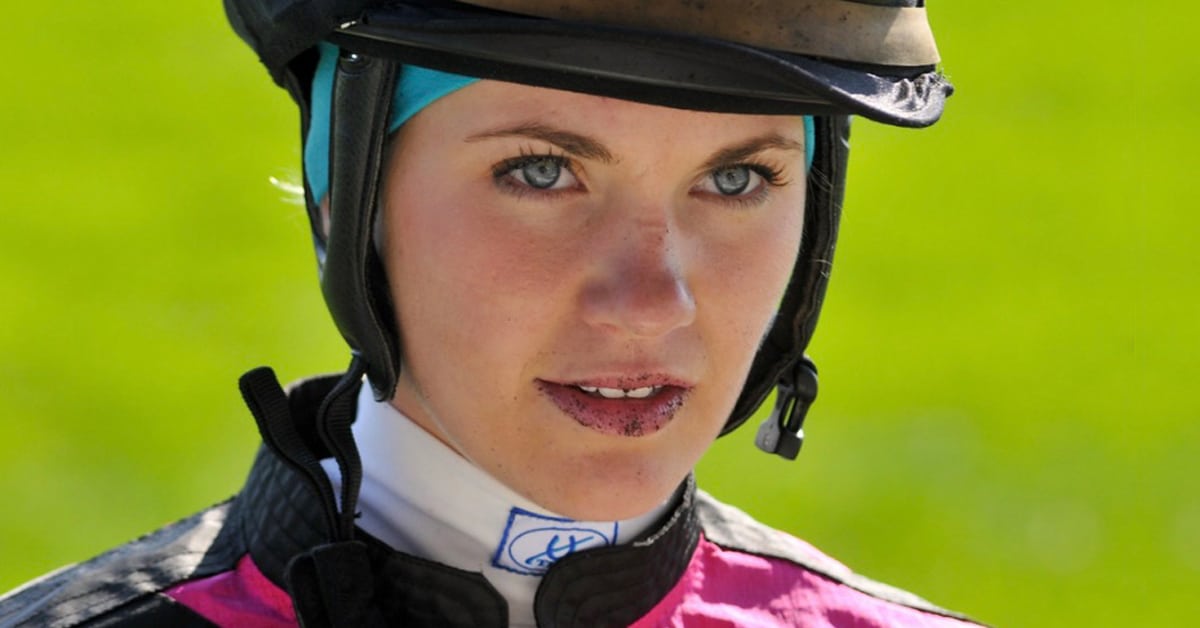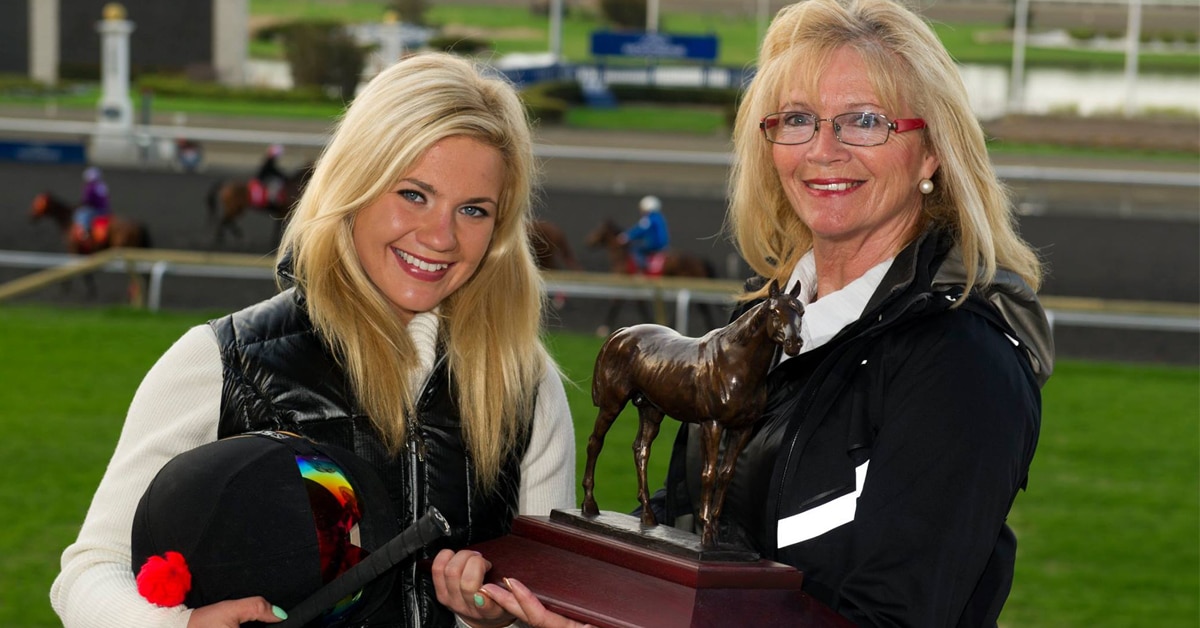As a child, Skye Chernetz of Oakbank, Manitoba, would wake up at the crack of dawn when she knew her mother, Bonnie Eshelman, was heading out to the track.
It is a lifestyle Chernetz, now 28, was born into ‒ virtually growing up at Assiniboia Downs in Winnipeg. She learned to ride before she could walk. Was working horses on the bit and in a frame by the age of four. Started show jumping by age six. Competed for years.
Then came horse racing.
The rest is history, says Eshelman. When her youngest daughter first showed interest in becoming a professional jockey, she admits she was not particularly ecstatic about her choice. But recognizing this passion, she says, “Rather than be the one to try to stop her, I thought, you know, it’s best if this is really what she wants to do, just support her, and so that’s what I did.”
“I’m sure she would rather have had me do something that wasn’t quite as dangerous,” says Chernetz. “But at the same time, she also knew how passionate I was about doing it, and she knew that I wasn’t going to give it up.”
Eshelman was uniquely aware of what this career required. She was one of the first female jockeys in Canada, riding from 1972 to 2005 and being the first woman to win a stakes race in Ontario. She knew firsthand some of the challenges of the sport, such as the risk of injury, relentless training schedules, and being a female in a male-dominated industry.
This last one is something female jockeys still struggle with, says Chernetz.
“There’s always a misconception that women aren’t quite as strong or maybe you wouldn’t be quite as brave,” says Chernetz. “So you know we definitely have to deal with kind of proving ourselves a little more in that way, and I think we definitely do have to work harder.”
While things have improved since Eshelman’s early days as a jockey, with more female jockeys, trainers and exercise riders in the industry now, she says the unchecked prejudices are still alive and well at the racetrack.
“There is this inherent prejudice that a man can do better,” says Eshelman. “I think that’s there, and that’s what you begin with when you start [as a female jockey]. The only way you break that down is by winning and being successful.”
And that is exactly what Chernetz did in her breakout year of 2012. After her move out East to Woodbine, with her mom as her agent, she won 25 of her 385 starts, earning more than $1 million in purses at the start of her apprenticeship.
It was the next year though, 2013, that was Chernetz’s best year yet, winning 54 of her 579 starts and raking in more than $2 million in purse earnings before taking home the Sovereign Award for Outstanding Apprentice Jockey.
Chernetz is still on the winning trail, picking up four wins out of her 14 starts this late-starting season. She says that she still considers 2013 to be the highlight of her career thus far.
“I had a really good beginning when I was an apprentice … I hope to replicate it again but yeah, it was definitely the funnest times,” says Chernetz. “The Sovereign Award was the highlight of my career for sure because I’d worked so hard, and it was a goal of mine for a long time, so to achieve it was really special.”

(Henry Chan photo)
Looking ahead, Chernetz, who is currently on the mend from a bad spill in the 9th race at Woodbine on June 27 (and is scheduled to be back in the saddle for the July 17th card), is working towards winning a stakes race as well as finding a good horse to get her into the winner’s circle.
She says that her mom was, and continues to be, a big part of her winning streak. She considers herself quite lucky to have Eshelman for personal and professional support.
“It is really cool because even on a daily basis we work together. She owns and trains her own horses so I help her with the barn chores and then gallop them. But even as far as racing, she helps me because she understands how it was, and she can give me a lot of good advice,” says Chernetz. “We watch all the races together, too. She calls me basically after every race I ride, and we talk about it and go over the race together, so it’s pretty special.”
Eshelman says that although she wanted to support her daughter as her mom, as a rider and trainer herself, and someone who trained under some of the best riders in the U.S. and Canada, she was able to also recognize her daughter’s raw talent and potential for going far in the sport.

(Spookhorse photo)
“She just had those hands, she just had that gift. It wasn’t just being a mother, you know when you always think your children are the best in everything,” says Eshelman with a laugh. “Others who really knew the game also recognized it. So, I just decided I wanted to be there and to help her get as far as she could, or [where she] wanted to go. It’s tough to do it on your own, it’s sort of a tough life, but if you do have support it is very rewarding.”
Chernetz says she would not be where she is today without her mom.
“I mean, she’s the whole reason I came to Woodbine in the beginning. She was the one that believed in me and really believed in my passion, and she’s really the whole reason that I got to be able to follow my dream,” says Chernetz. “She tried to give me every opportunity for me to be successful and try to do my best.”
As much as a support system is integral for most, Chernetz says that younger female jockeys entering into the industry should also never forget the importance of first believing in themselves– particularly since she says there will always be people who try to make you doubt your abilities.
“Try to prove those people wrong,” says Chernetz. “You have to stay so focused on yourself, and you kind of have to have thick skin. So keep the criticism as constructive criticism, even if it’s not really so constructive. Just always believe in yourself, no matter what.”


